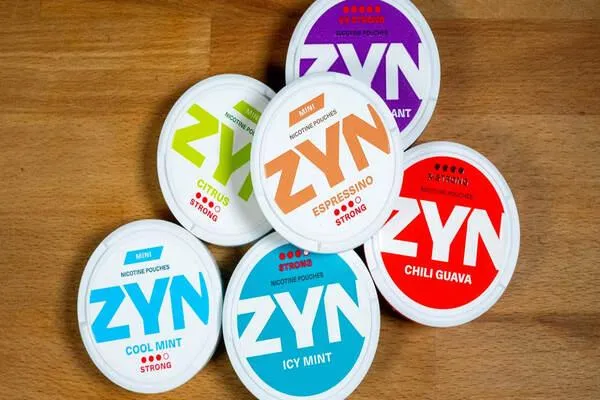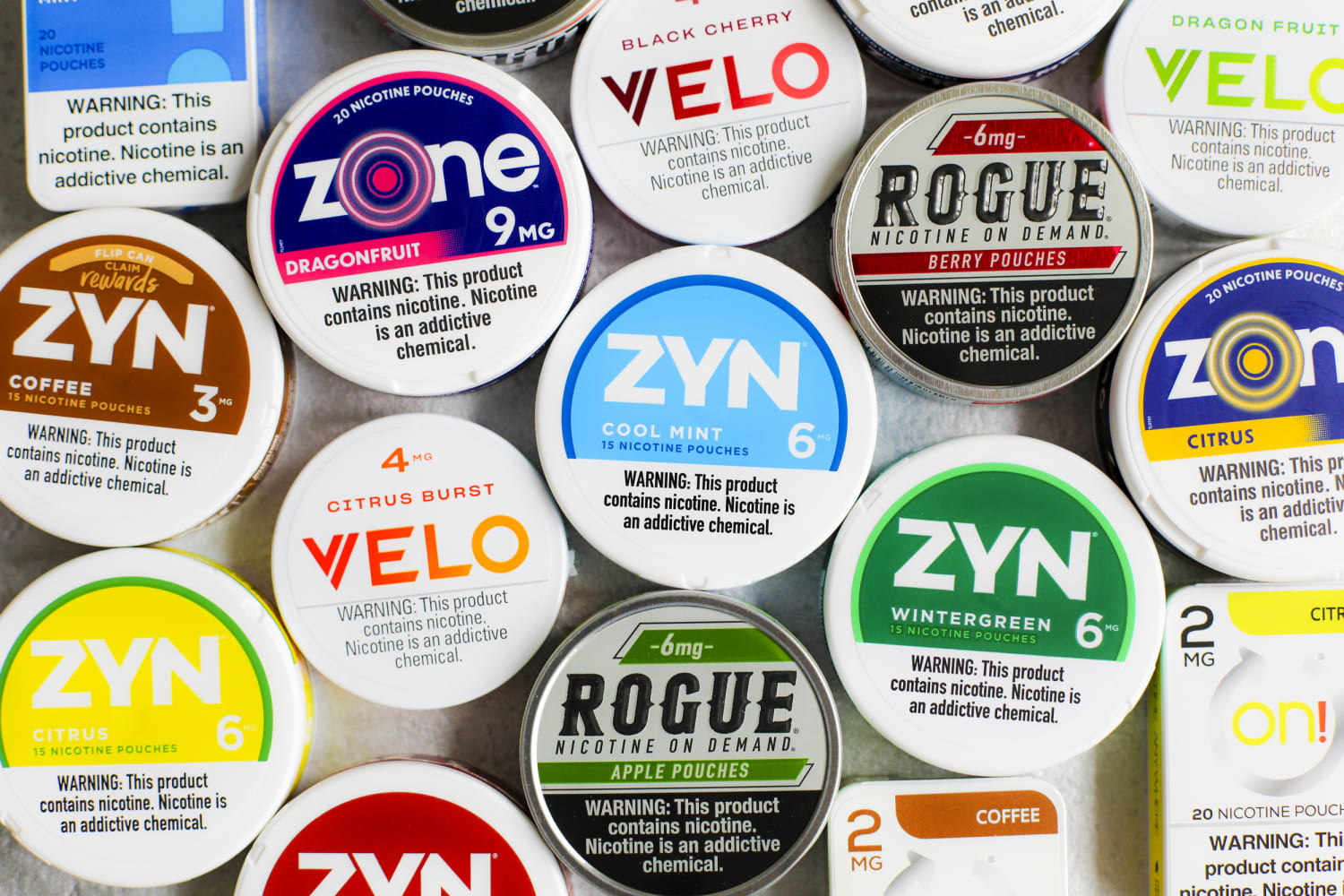
ZYN Nicotine Pouches: Safer Alternative to Cigarettes in 2025?
The rise of tobacco-free nicotine pouches has prompted adult smokers to ask whether ZYN nicotine pouches offer a safer way to satisfy nicotine cravings than traditional cigarettes. This article explains how ZYN delivers nicotine, contrasts the well-documented dangers of smoking, compares health impacts side by side, examines long-term unknowns, and explores whether ZYN can support harm reduction or cessation efforts. You’ll gain clear insights into product composition, relative risks to respiratory, cardiovascular, and oral health, addiction potential, emerging research gaps, and best practices for adult smokers and non-smokers alike.
What Are ZYN Nicotine Pouches, and How Do They Deliver Nicotine?
ZYN nicotine pouches are small, tobacco-free sachets containing nicotine salts, plant fibers, flavorings, and buffering agents that release nicotine through oral mucosa absorption, providing discreet and spit-free delivery without combustion. By placing a pouch between the upper lip and gum, nicotine diffuses across the mucous membrane, supporting rapid uptake similar to low-temperature inhalation but without smoke or tar. This mechanism reduces exposure to combustion byproducts while still satisfying nicotine receptors in the brain.
What ingredients are in ZYN nicotine pouches?
Below is an overview of the core components that make ZYN a tobacco-free alternative.
Nicotine salts for rapid absorption and stable pH
Food-grade plant fibers are used as the pouch matrix.
Natural and artificial flavor extracts (mint, cinnamon, coffee)
pH adjusters (sodium carbonate) to optimize nicotine release
Sweeteners, such as xylitol, for palatability.
ZYN’s ingredient profile removes plant leaf and combustion residues, paving the way for lower chemical exposure compared to smoked tobacco.
How does nicotine absorption from ZYN differ from cigarettes?

ZYN pouches deliver nicotine through oral membranes, producing a slower but sustained absorption curve that smooths cravings, whereas cigarettes introduce nicotine via lung tissue, offering fast spikes paired with smoke-induced toxins. This difference supports steadier plasma levels and avoids the rush-and-crash cycle tied to inhalation, helping users maintain focus and reduce withdrawal peaks.
What nicotine strengths and flavors does ZYN offer?
ZYN is available in two principal nicotine strengths—3 mg and 6 mg per pouch—and various flavors to match individual preferences:
Spearmint and wintergreen for refreshing cooling
Cinnamon and coffee for richer taste profiles
Citrus blends like lemon and berry for light fruit notes
Flavor variety and strength options support personalized dosing and may improve transition from smoking by aligning with user taste and nicotine needs.
What Are the Known Health Risks of Smoking Cigarettes?
Cigarette smoking involves inhaling burned tobacco, which combines nicotine with tar, carbon monoxide, and thousands of additional chemicals that damage multiple organ systems. These harmful byproducts create inflammation, cellular DNA damage, and impaired oxygen transport, contributing directly to chronic diseases and premature mortality.
This citation provides scientific backing for the article's claims about reduced toxicant exposure and the potential for harm reduction when adult smokers switch to nicotine pouches.
How do cigarettes impact lung, heart, and oral health?
Smoking accelerates plaque buildup inside arteries, raising heart disease risk, while smoke-driven inflammation causes emphysema and chronic bronchitis in lungs. In the mouth, tobacco smoke erodes enamel, promotes gum disease, and increases oral cancer rates. The combination of vascular constriction and immune suppression degrades overall health.
What are the addiction risks associated with cigarette smoking?
Cigarettes combine rapid nicotine spikes with behavioral cues—lighting up, exhaling smoke—that reinforce habit loops and elevate dopamine release. This creates strong psychological and physiological dependence, making quitting difficult and sustaining addiction cycles that perpetuate health damage.
Are ZYN pouches less harmful than cigarettes for respiratory and cardiovascular health?
Yes, ZYN pouches avoid smoke-related lung damage and tar-induced arterial inflammation while still causing moderate nicotine-driven heart rate and blood pressure elevations. Overall, removing combustion byproducts improves respiratory outcomes and lowers—but does not eliminate—cardiovascular strain.
What oral health effects are linked to ZYN versus cigarettes?
ZYN use can lead to mild gum irritation, slight discoloration, and occasional mucosal soreness, whereas smoking accelerates gum disease progression, enamel erosion, and oral cancer risk. Limiting exposure to smoke toxins shifts the oral health balance toward fewer severe lesions.
What are the addiction potentials of ZYN compared to smoking?
Nicotine pouches maintain addiction potential through steady nicotine delivery, and while they lack smoking ritual reinforcement, the chemical dependency remains strong. Switching to ZYN may reduce behavioral triggers but does not remove the neurochemical drive of nicotine.
What chemicals are absent in ZYN that make it safer than cigarettes?
ZYN pouches do not emit tar, carbon monoxide, or volatile organic compounds generated by burning tobacco. Removing these combustion products is a core factor in reducing carcinogenic and cardiorespiratory hazards.
What Are the Long-Term Effects and Unknowns of Using ZYN Nicotine Pouches?

Long-term research on ZYN remains limited, making it difficult to quantify chronic effects over decades. Nicotine’s impact on cardiovascular health, oral tissues, and brain development requires ongoing study to determine true safety profiles.
How does nicotine from ZYN affect cardiovascular health over time?
Chronic nicotine absorption can sustain mild increases in resting heart rate and blood pressure, potentially contributing to arterial remodeling and early markers of hypertension if usage continues unchecked.
What risks does nicotine pose to brain development, especially in youth?
Nicotine exposure before age 25 can disrupt synaptic pruning, impair cognitive maturation, and heighten addiction vulnerability. And while ZYN may seem less visible, its flavors and ease of use can appeal to underage individuals, amplifying developmental concerns.
Can ZYN Nicotine Pouches Be Used as a Harm Reduction or Smoking Cessation Tool?
ZYN may support harm reduction by providing adult smokers an alternative nicotine source with fewer toxicants than cigarettes, but it is not FDA-approved as a formal quit aid and should not be used by non-smokers or youth.
How effective is ZYN for adult smokers seeking to reduce harm?
Evidence suggests many adult smokers can cut cigarette use by substituting ZYN, leading to measurable declines in toxicant intake. Discreet dosing and flavor options help maintain adherence and reduce episodic heavy smoking.
Could you please explain why ZYN has not received FDA approval as a smoking cessation aid?
ZYN is classified as a non-therapeutic nicotine product rather than a medical device or drug, so it has not undergone the clinical trials and regulatory review required for official cessation claims.
What precautions should non-smokers and youth take regarding ZYN use?
Non-smokers, particularly youth and pregnant individuals, should avoid ZYN entirely due to nicotine’s addictive nature and developmental risks. Adult smokers should limit use to genuine switching efforts and follow age-verification safeguards.
Quitting all nicotine products remains the safest path to better health, but ZYN pouches can serve as a reduced-harm option for committed adult smokers seeking to lower their exposure to smoke-related toxins.